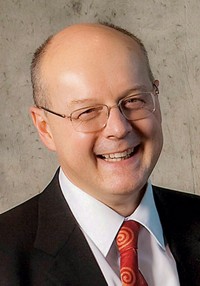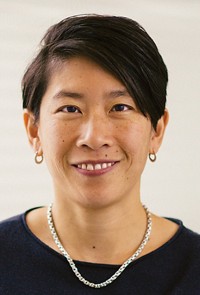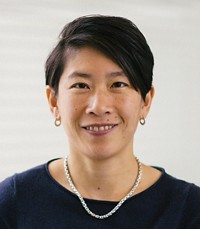Advertisement
Grab your lab coat. Let's get started
Welcome!
Welcome!
Create an account below to get 6 C&EN articles per month, receive newsletters and more - all free.
It seems this is your first time logging in online. Please enter the following information to continue.
As an ACS member you automatically get access to this site. All we need is few more details to create your reading experience.
Not you? Sign in with a different account.
Not you? Sign in with a different account.
ERROR 1
ERROR 1
ERROR 2
ERROR 2
ERROR 2
ERROR 2
ERROR 2
Password and Confirm password must match.
If you have an ACS member number, please enter it here so we can link this account to your membership. (optional)
ERROR 2
ACS values your privacy. By submitting your information, you are gaining access to C&EN and subscribing to our weekly newsletter. We use the information you provide to make your reading experience better, and we will never sell your data to third party members.
Publishing
Gilbert Walker named editor-in-chief of Langmuir
University of Toronto chemist aims to grow the journal’s author community
by Linda Wang
December 3, 2019

Gilbert C. Walker, professor of chemistry at the University of Toronto, has been named editor-in-chief of the ACS journal Langmuir, which highlights advances in the understanding of interfaces. He will begin his appointment in January, succeeding Françoise Winnik of the University of Helsinki, who is retiring.
“Langmuir has an excellent reputation and a long and admired history,” says Walker. “Working with the team of senior editors and professional staff, and talented authors doing great science, I will focus on growing the author community, and increasing the journal’s impact factor.”
Walker’s research focuses on the fundamentals of electron transfer, novel surface microscopies, biofouling control, and nanophotonics using plasmonics for biodiagnostics. At the University of Toronto, he leads the Laboratory for Advanced Nanoscience at Surfaces, which uses chemistry, optics, and mechanics to investigate fundamental nanoscale phenomena at surfaces.
“Professor Walker is a leader in this field, and we look forward to working with him to develop his vision of how to lead Langmuir to even greater heights,” says James Milne, acting president of ACS Publications.
Walker earned a BA in chemistry and mathematics from Bowdoin College in 1985, and a PhD in physical chemistry from the University of Minnesota in 1991. He joined the University of Toronto in 2005.
“I am looking forward to adding more fun to the journal and the community it supports,” Walker says. “This comes naturally, I believe, by the journal conversing with its readers through special/virtual issues and editorials. These instruments create community, excitement, and perspectives on where the field is going.”





Join the conversation
Contact the reporter
Submit a Letter to the Editor for publication
Engage with us on Twitter